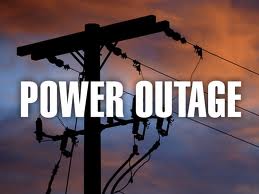Superstorm Sandy forced millions of people to live without electricity for 2-6 days. Here in Oregon, we don’t get hurricanes, but we’ll eventually have a major earthquake, which will cause power outages. Wherever we are in the world, we are vulnerable to some form of natural disaster.  And global warming (also known as climate change) means that more severe weather events will keep happening with increasing frequency.
And global warming (also known as climate change) means that more severe weather events will keep happening with increasing frequency.
Rather than being in denial or getting depressed about this, I choose to be active about it. It’s more empowering this way, makes me feel more alive.
Common wisdom first: we all need to have two week’s worth of food on hand (my household has buckets of freeze-dried food from CostCo in the garage), but more importantly, water, a minimum of one gallon per person per day. We need extra sleeping bags and blankets, and battery-powered radios for getting news. A working bicycle is very smart to have on hand, as New York City commuters found. Here is excellent detailed advice on being prepared to live without electricity. I especially like the way the writer addresses candles, flashlights, matches and batteries. And here is a good toolkit and discussion guide on preparing with others for emergencies. (Metro Councilor Kathryn Harrington referred me to that resource; thanks, Kathryn.)
The tips I’m offering below are the less common wisdomon being prepared for power outages and other emergencies.
Keep some sick days or vacation days stocked, if your job gives you these. Power outages affect workplaces as well as homes, and most workplaces can’t operate without electricity. They shut down, and most employees don’t get paid for days they don’t work. Your income will suffer unless you’ve saved sick or vacation days you can use. If you’re self-employed or otherwise don’t have this resource, you need cash reserves. Living below your means, i.e. (spending less than you make each month and saving the difference, is the way to do this.
Build relationships with your neighbors. Our neighbors are likely to be the most important people in our lives when a power outage or natural disaster hits, because emergency professionals will be overwhelmed, and cannot get to everybody in need. Are you in the habit of greeting your neighbors by name, and helping each other out with things like gathering mail and watering the garden when one of you is out of town? We are. Of course, some neighbors are much more responsive than others. I have a friend whose whole neighborhood in Newberg, Oregon, is prepared for a power outage. She, Leslie A., reports that she once hosted a wine-tasting and potluck dinner party during a power outtage — by candlelight. Go, Leslie!
Practice having flexible expectations. A key reason people tend to fall apart under pressure (power outages are pressured situations) is that they think things should always go well for them. Those are rigid expectations, and they don’t correspond to reality. Activities like camping and challenging hikes can help us develop flexible expectations. For example, we find that we can survive being cold/hot/uncomfortable, and not having access to all our creature comforts, and not being as spick-and-span clean as we’d prefer to be. (Hint: the one gallon of water per person per day doesn’t allow for any baths or showers. I’m a big proponent of sponge baths, which only need enough water to moisten a washcloth.)
Try having a week per night of non-electrified entertainment. All of us, including me, depend An example is singing or playing a musical instrument. Conversation can be a fine way to pass an evening, including storytelling (did you know that movies are just an elaborate form of storytelling?). The idea that entertainment comes from things outside of ourselves is a modern invention. It’s a shared group opinion that we’ve forgotten is just a preference, not a requirement for living. For the 99.9% of human history prior to electricity being harnessed, humans had fun in the absence of computers, video games, etc. Playing cards is another pleasant way to self-entertain. And books!! Books are a godsend in power outages (provided you remembered to stock up on candles and matches or flashlights and batteries). But remember that not all books are created equal. Some affect us very positively, some neutrally and others negatively. Read things that are uplifting, encouraging or comforting. A power outage wouldn’t be the time to read Stephen King, for example, or other scary tales of horror.
Practice responding to life’s irritations and inconveniences without anger. Power outages present a non-stop series of irritations and inconveniences, and responding with anger will make it harder not just for you, but for everyone with whom you come in contact. People who have learned to curb their frustrated impulses are able to think more clearly and act more competently in crises than people who cannot control their emotions. A little-known fact is that we have to manage our thoughts and emotions in crisis as surely as we have to manage our resources of food, water, candles and batteries.


